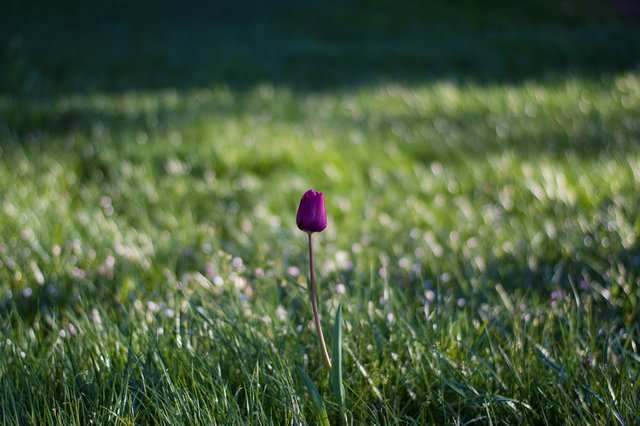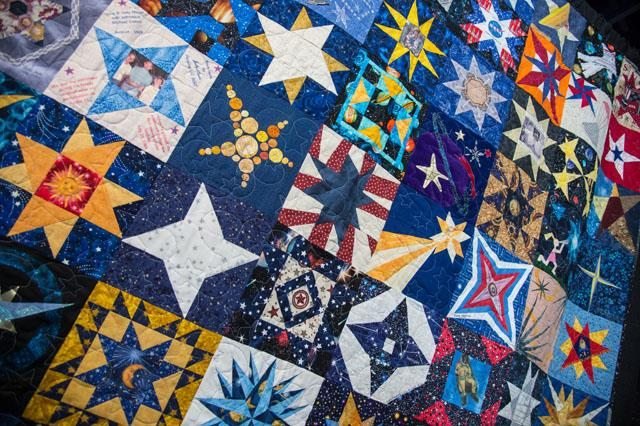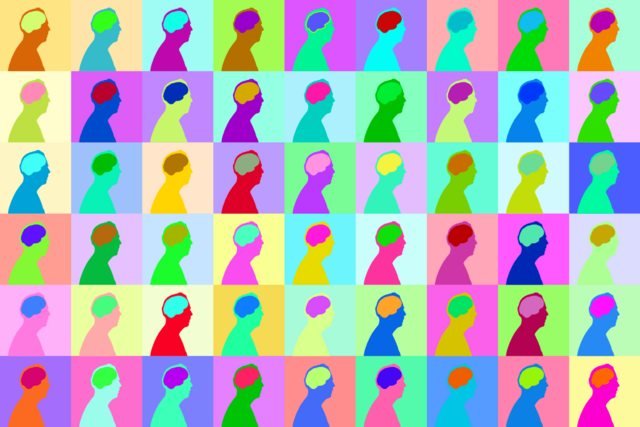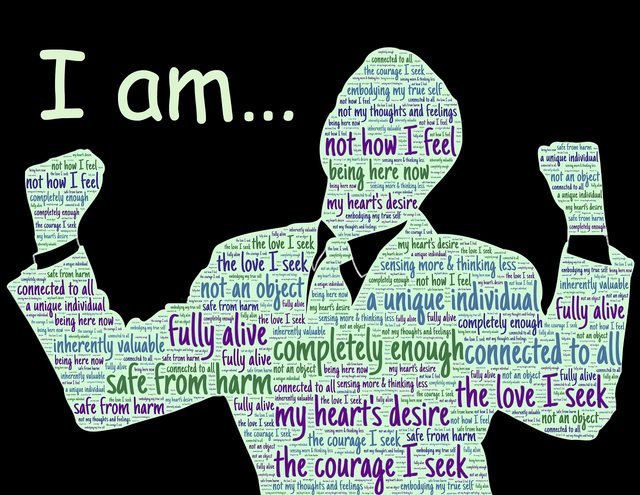Towards a Holistic Philosophy of Education - The Uniqueness of the Individual

Jacob was a student that loved to take a classroom off course. He was as distracting as, you'll never guess what happened! The other day, my dad was pulling the car out of the garage at the same time that my dog - a Pyrenees puppy - his name is Freddie. You know, like Krueger. What, you've never actually seen the movie?!? Well my dog dashed out my front door. I was like - Wait! Dad! Stop! And I ran after Freddie and waved at my dad, who was driving a new car that he got last week. Seriously, that thing is a beast. It can go like 0 to 60 in just 3 seconds flat. My dad told me that when I finally get my license, he'll let me take it out on a date with Kat. She would just die! And so we... wait... what were we talking about?
Yes. Jacob was distracting - and easily distractable. I'd give instructions to the class on an assignment. Everyone would quickly get to work, except for Jacob. He'd be spinning his pencil in his hands, twirling it intently like a helicopter blade, as if it were going to fly up to the ceiling if he could get it going fast enough. I'd give him "the look" - you know, the look teachers become masters of in the classroom, the stare of certain death. Yet somehow it would never penetrate. We'd make eye contact, then he'd turn to his friend next to him - "Hey, check this out!" - and spin it even faster.
"Jacob. Put the pencil down and get to work." (I put my stern voice on.)
Then, slowly... ever so slowly... as if it was his decision all along, Jacob would finally settle down and get to work. For about two minutes. Then something else would catch his eye and the process would be repeated.
It was easy to get exasperated with Jacob. Underneath, he really was a loveable kid. There was something endearing about him. His enthusiasm for anything and everything just seemed to explode from within. Yet for the life of him, he could not focus in class, and struggled to keep a passing grade.
Over time, I got to know Jacob and his parents pretty well. Because of his classroom struggles, there were numerous phone calls home, and a couple after-school parent conferences. With each meeting, details came out that helped put Jacob in a new light, bringing new understanding on what was really going on underneath.
Jacob didn't talk about it with others, but he was a foster child. His birth-mother was tweaking on meth while pregnant with him, and he had several medical complications as a result. Most visibly in the classroom was his ADHD symptoms. Jacob was taken away from his parents at 5 years old by Child Protective Services and went into the foster program.
It gets even worse. While moving from foster family to foster family, Jacob ended up with one that was abusive. Physically, sexually, and emotionally. He was mistreated for almost a year before it was discovered, and he finally ended up at 12 years old with a loving stable family. This was the family I got to meet with. But Jacob now had years of tragic experiences under his belt, and had no idea how to successfully cope with everything he was dealing with inside.
I'd like to say that, just like a Hollywood film, I found that secret spark within him and cultivated a love for learning, changing his life forever. That wasn't the case. I did work hard, and I tried everything under the sun to encourage, cajole, challenge, persuade, and entice him to work. By the time my year with him was over, he was very much the same student. He didn't change... but I did.
I had Jacob as a student back in my second year of teaching. But his story is so memorable for me because it was one of the first times I really saw one of my students. He wasn't just a name on my roster, a grade in the gradebook, a student to call home about, or someone to reprimand to get on task. He was Jacob. Full of life and energy, but also full of frustration and heartache. I knew some of his struggles - both in and out of the classroom. I saw his foster parents' love for him. I learned to see him through the eyes of compassion, and patience, and hope. And even more, knowing Jacob also meant the beginnings of knowing the rest of my students. I began to see Josh and Kayla and Luis and Maddie and Antonio. I began to see my students in all their uniqueness, and it dramatically changed my teaching.

Looking for Uniqueness
In an educational system that is often structured as a one-size-fits-all assembly line of learning, what might happen when we recognize and honor the uniqueness of every student?
Last week I wrote on several principles that could breathe life into stagnating classrooms and schools, looking foremost at the personal side of education:
"Education begins and ends with people, and true education will always take place within the context of community. Education is far more than the acquisition of certain skills and discrete facts, but is a transformational process built on mutual trust, cooperation, and whole-heartedness - for both the teacher and the student." (from last week's article)
If we believe that community is central to education, then these principles should point us in the right direction towards practices that foster and promote holistic learning.
- Uniqueness of the individual must be foremost
- As a teacher, YOU are the curriculum
- Critical thinking and creativity are far more important than discrete knowledge
- (Positive) discipline is integral to education
- To know is to love
Each of these was briefly discussed in my last article - "Towards a Holistic Philosophy of Education" - but I will be focusing today on just the first point, the uniqueness of each person in the classroom. Subsequent articles will speak to each other point in turn.

Differentiation in Contemporary Education
Think for a moment on how varied a classroom can be.
You have students with different learning styles. Some thrive in the typical classroom model of direct instruction and lecture, taking notes, making connections on their own. Others prefer working collaboratively in groups, letting others fill in the gaps where one's knowledge or skills fall short. Some students need to be actively doing something to stimulate their brain to take in new information; these kinesthetic learners do best when they are working with their hands or moving their body.
Howard Gardner was one of the first to discuss these concepts in detail in his book Frames of Mind: The Theory of Multiple Intelligences. He proposed nine different modes of learning, and believed that people learned best in two or three of these modes. What that implies is that teachers who instruct in primarily one mode will only be connecting well with a third of the classroom!
In many places in the United States, English language learners are a significant part of the classroom. Not only are they having to overcome the hurdle of language on top of mastering the content itself, they are also interfacing between two different cultures at home and school.
In the classroom you also have students with special needs. Some have learning disabilities (auditory processing disorder, dyslexia and dysgraphia, language processing disorder, etc.), or physical/cognitive disabilities (ADHD, autism, muscular dystrophy, etc.) or medical/psychological impairment (depression, long-term illness, mental illness, etc.). These are all issues that are caused outside of a student's control, yet they must learn to overcome or cope with these challenging places.
Teachers also have to acknowledge the different levels of content readiness in the classroom. For many different reasons, students are coming into class with varied levels of ability. It cannot just be assumed that everyone is starting from the same place, with the same knowledge, and with the same skills.
In educational terms, creating a learning environment that meets the needs of all these types of students is called differentiation. Differentiation is the recognition that all students will learn differently, and instruction should be designed accordingly to meet those needs. Carol Ann Thomlinson and Rick Wormeli are educators who have been at the forefront of highlighting this aspect of education, and their work has opened up important new developements in the classroom.
These ideas lay a foundation for uniqueness, but I'd like to push it a step farther.

What Else Makes Us Who We Are?
The above descriptions are very typical when speaking of differentiation in the classroom. It has become common practice to group students by ability, preference, or learning style - letting students work in ways they do best. But peel back these layers even further, and what do you find?
What if a teacher took into consideration:
- Socio-economic status
- Philosophical/faith background (worldview)
- Ethnicity and cultural identity
- Home life - married/divorced? with parents or other guardians? siblings?
- Past life-changing experiences - both positive and negative
- Peer groups and social identity
- Future aspirations and goals
- Personality and temperament
- Hobbies and sports, extracurricular involvement
The list could go on a lot longer. But you can see that these are all things that are not directly related to content in class, but all have a direct or indirect impact on the student as a learner.
I can't even count the number of times over the years that I have spoken with students outside of class, holding them to an account for not doing homework or a general lack of effort, and then finding out that there is something else going on that is impacting their studies. A mom with cancer. They just broke up with their girlfriend. Parents are fighting at home. Angry over a friend who hurt them. Struggling with depression.
And then I think of the times when students don't even know why they aren't giving much in the classroom. The answers of "I was being lazy" or "I just don't care" are usually cover-ups for deeper issues and students may not even yet understand the connection.
All this is to say that teaching must take into account the whole person. True learning happens when knowledge isn't just remembered, but assimilated - the knowledge becomes a part of who you are. It takes its place among your career ambitions and fears for your mom's health, your future vacation plans and memories of last Christmas. Your brain isn't a filing cabinet with everything tucked away properly in alphabetical and chronological order. It is a neural network with complex associations and varied pathways exploding into thousands of possible connections. (Why is it that when I smell roses I think of the storming of the Bastille?)
So when we teach our students, we have to know that what they are discussing in their World History class and learning in Trigonometry and investigating in Physics - all of these are within a context of a gloriously (and painfully) messy life.
When I taught Jacob, I had to take into account the life he had: a very painful upbringing and a (now) deeply caring foster family. Not that I would lesson plan around his life story. But I had to know that every distraction in class, every missing assignment, every snarky comment - all these things were coming from somewhere. Yes, he needed a stern glance and a talking-to after class at times. But he also needed patience and hope and love.

Come join us on Discord! https://discord.gg/7qyarFD
The education system is in dire need of a complete overhaul!
I read a book a while ago by a Richard McKenzie, professor of economics, who grew up in an orphanage. The book is an autobiography, but the overall argument is that orphanages are better options than foster care, and he laments the fact that the government decided for the latter. He argues orphans turn out better both professionally and emotionally compared to foster children.
It might seem strange, but I often think that Plato's idea of the Polis (government) raising children instead of their parents (who might be carrying with them all sorts of issues), often makes much sense.
Congratulations @abishai! You have completed some achievement on Steemit and have been rewarded with new badge(s) :
Click on any badge to view your own Board of Honor on SteemitBoard.
For more information about SteemitBoard, click here
If you no longer want to receive notifications, reply to this comment with the word
STOPThank you very much for your upvote @abishai. Pass by anytime, authors like me are encouraged by the support like yours. Regards.
Congratulations @abishai! You have completed some achievement on Steemit and have been rewarded with new badge(s) :
Click on any badge to view your own Board of Honor on SteemitBoard.
For more information about SteemitBoard, click here
If you no longer want to receive notifications, reply to this comment with the word
STOPA very good post and much needed. I too am a teacher. I have taught academics. and I teach swimming to all age groups. I have always felt that an instruction may be given in a group. But its implementation is monitored individually. Hence a personal connect is a must. Teaching is an art. You are a good teacher . :) Good post
And thank you for supporting my artwork "Catching Fire"